26 Interesting Facts About Henry Ford
 Introduction Introduction
American industrialist, Henry Ford (30th July, 1863 – 7th April, 1947) is best
known as the founder of the iconic Ford Motor Company (FMC), though he was
responsible for much more. Culturally, he revolutionized the transport industry
with the development of the Ford Model T automobile that enabled the
middle-class to own cars; automobiles had previously only been affordable for
the upper classes. In business, he’s credited with pioneering mass production
and establishing better working conditions and entitlements for employees.
After establishing the FMC in 1903, he ultimately became one of the richest
and well-known individuals in the world. He was a unique and remarkable figure.
However, despite his numerous positive contributions to society, there was a
darker and often contradictory side to the man behind the worldwide icon.
In 1945, failing health forced the prolific businessman into retirement,
leaving his grandson, Henry Ford II in charge of the long-held family business.
After suffering a cerebral hemorrhage in 1947, Henry died at the age of 83,
leaving behind a remarkable, curious and controversial legacy.
Fact 26) Henry
Ford Began Tinkering With a Watch
When Henry Ford was in his early teens, his father gave him a watch, which Ford
ended up dismantling and reassembling to work out how it operated. By the age of
15, Ford was known in his neighborhood as an unofficial watch repairman, working
mostly for his friends.

It was this inquisitiveness and inventiveness that would
ultimately lead Ford to the technological achievements he’d accomplish later in
life.
Fact 25) Henry
Ford Could Have Been a Farmer
Were it not for the death of his mother in 1876, Henry Ford could easily have
become a farmer, rather than pursuing his love of technology. He was born and
raised on a family farm, thus his father had always envisioned that Ford would
ultimately and inevitable take over when he reached adulthood.

While Ford had
always seemed at least okay with the idea of working on the farm, the only real
thing he had loved about the place was his mother. When she died, so did any and
all intentions to continue with life on the land.
Fact 24) Henry
Ford Worked for Thomas Edison
In 1891, Ford found work as an engineer as part of Thomas Edison’s business, the
Edison Illuminating Company. He quickly worked his way up to the position of
Chief Engineer. By 1893 he had obtained enough money to focus on personal
endeavors relating to gasoline engines, which led to the development of the
self-propelled Ford Quadricycle in 1896.
The Ford Quadricycle
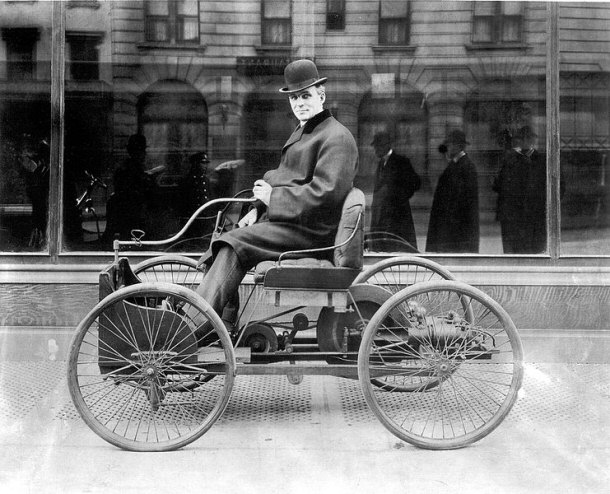
Edison (who was known to take credit for the achievements of his workers by
claiming them as his own) was greatly impressed with Ford’s efforts, which led
to Ford developing another vehicle in 1898. A year later, Ford left Edison’s
company to pursue his own business.
Fact 23) The
First Car Company Was a Failure
In 1899, upon leaving Edison’s company, Henry Ford obtained funding from William
H. Murphy and established the Detroit Automobile Company. While Ford was able to
develop a decent automobile in regards to quality, although he initially
struggled to produce something that was cost efficient.
First Product of the Detroit Automobile Company in 1900
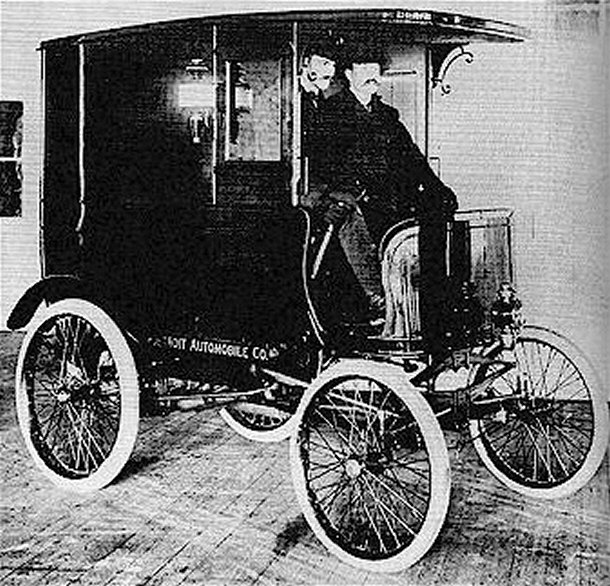
He specifically wanted
to make something that had a mass appeal. This failure led to Henry Ford having
to dissolve his first company in 1901.
Fact 22) Henry
Ford's First Successful Company Became a Competitor
After Ford’s failure with his initial company, he established another with C.
Harold Willis. The two developed a vehicle together. They gained attention for
the car after racing it, and the subsequent attention led to investors. With
further funding from William H. Murphy, Ford and Willis established the Henry
Ford Company in 1901, with Ford serving as the chief engineer.
C. Harold Willis

However, Murphy later hired Henry M. Leland for a consultant position, which Ford took offense to and
left. As Ford was no longer associated with the company, the business was
renamed the Cadillac Automobile Company.
Fact 21) A
Pioneer for Advertising
Henry Ford and Ford Motor Company, was one of the first corporations to establish a publicity machine
that ensured that the company name was known nationwide, through newspaper
stories about the company’s various new products. Furthermore, Ford had a
network of dealers throughout America, in pretty much each and every city.
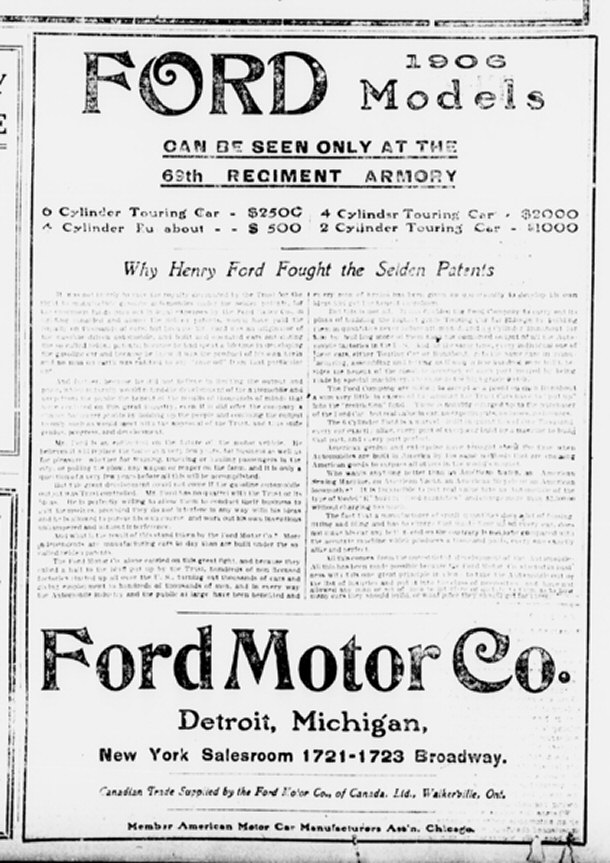
The
franchises proved especially valuable at spreading the company as they sold
vehicles but also popularized the very idea of the then novel concept of
recreational driving. As a result of the publicity, Ford achieved incredible
sales.
Fact 20)
Pioneered the Production Line
Henry Ford was always exploring various ways to achieve low cost and high
efficiency. As a result, in 1913 the Ford Company established the first moving
assembly belt. This achieved a remarkable increase in the company’s efficiency.
There’s some controversy surrounding the initiative, though. While Ford took
credit for it, current-day sourcing indict that the idea was developed and
implemented by a number of Ford’s employees, including Peter E. Martin, Clarence
Avery, C. Harold Willis and Charles E. Sorensen.
Assemble Line at Ford Motor Company in 1913

On a usual note, were it not for the invention of the assembly line most cars
today might be black. In the early 1900s, half of all vehicles in the U.S. were
Fords. All of Ford’s cars were black, due to the fact that the specific paint
used involved a shorter drying period. However, with the development of the
assembly line and the increased output, other colors became available.
Fact 19) Henry
Ford had a Mission for Peace
Ford regarded himself as a pacifist. Personally, he regarded war as a tremendous
waste. In 1915, Ford embarked on a peace mission to Europe, aboard his ocean
liner Oscar II, otherwise known as “The Peace Ship”. Dipping into his own
fortune, Ford and a number of prominent peace activists of the era departed the
U.S., headed for Europe on their unique mission for peace.

Ford aspired to generate enough publicity for the notion of world peace that
he would inspire an end to World War I. Ford’s endeavor was generally ridiculed
by the media, often referring to the voyage as the “Ship of Fools”. Furthermore,
the trip was marred by illness and, ironically, infighting among the various
peace activists. Ultimately, Ford turned the ship back to the U.S.
Fact 18)
Potential Political Career
In 1918, the then President Woodrow Wilson urged Ford to enter politics and
stand as a Democrat for the U.S Senate. Ford opted instead to run as a candidate
for peace and a vocal advocate for the League of Nations, whose objective was to
ensure world peace following World War I.

Ford was beaten by the Republican
candidate, but only by a slim margin.
Fact 17) Henry
Ford Embarked in Brilliant, but Questionable Business Practices
In 1918, in what would prove to be a genius move, Ford handed the presidency of
the FMC to his son, Edsel Ford. However, Henry still had the final say over each
decision made. Meanwhile, Henry established the business Henry Ford and Son, for
which he employed his most skilled workers from the FMC. This was all just a
scam, though.

Henry’s objective was to gain complete control of the FMC, by scaring
stockholders into selling their shares, thinking that the FMC would no longer be
profitable without the leadership of Henry. His plan succeeded, with Henry soon
obtaining complete control of his company.
Fact 16) Henry
Ford Did Not Believe in Accountants
Henry Ford never believed in using accountants, as he felt that they weren't
productive enough and figured that they would ultimately end up costing him more
money than they were worth.

Strange that his company was so successful without something that today's
corporate environment almost mandates companies to have an accounting
department.
Fact 15)
Pioneered Welfare Capitalism
Ford pioneered the idea of welfare capitalism, which was intended to improve the
quality of life of his employees. In 1914, Ford established the $5 day wage
(approximately $110 by today’s standards), which at the time was more than
double the average wage. The strategy proved beneficial for both Ford and his
employees. Many of the best mechanics in the Detroit pursued careers with the
company, which in turn increased productivity and reduced the cost and need for
training. Subsequently, other auto businesses in Detroit were essentially forced
to raise their own wages.
Ford Motor Company Plant in Cleveland, OH
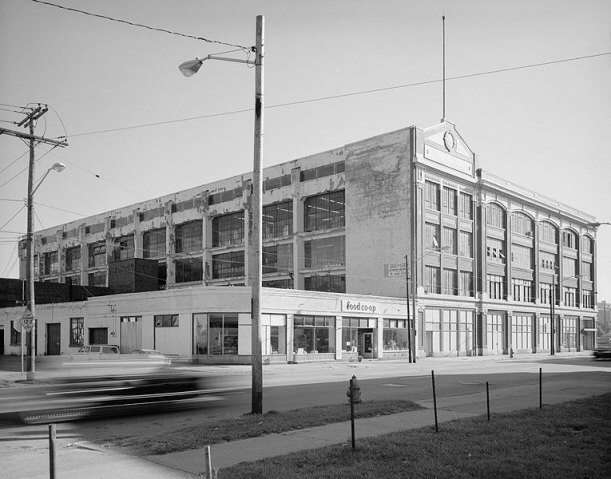
Officially, Ford’s objective was to ensure that his workers could afford the
cars they were making. While his motivations at least appeared to be noble, his
motives were somewhat self-serving as there had been significant turnover within
the company with numerous departments having to hire 3 different people for a
single position over the course of a year. With the introduction of the $5 day,
turnover dropped significantly.
Fact 14)
Invaded Workers’ Privacy
Ford offered a profit-sharing scheme to employees who had been a part of the
company for over six months. However, this came at a significant cost to the
employees in question. Ford established as “Social Department”, which set out a
strict code of conduct that employees were to live their lives by – outside of
the workplace.

The department looked down on those that chose to gamble or drink in their
free time, and even employed around 50 investigators to ensure employees were living
ostensibly wholesome lives. Ultimately, bad publicity forced Ford to tone down
some of the more extreme intrusions that the department had routinely made.
Fact 13) Henry
Ford Hated Unions
 Despite Ford’s public image as a businessman who cared about his workers’ rights
and welfare, he loathed labor unions. He felt that the objective of the unions
was to hinder the company’s productivity to ensure long-term employment for his
employees. He also believed that the union aspired to create a constant economic
crisis in the business world and thereby keep themselves relevant. Despite Ford’s public image as a businessman who cared about his workers’ rights
and welfare, he loathed labor unions. He felt that the objective of the unions
was to hinder the company’s productivity to ensure long-term employment for his
employees. He also believed that the union aspired to create a constant economic
crisis in the business world and thereby keep themselves relevant.
Former boxer, Harry Bennett was employed by Ford to quash any and all union
activity within Ford through brutality. Despite the concerns of numerous Ford
officials (including Henry’s son, Edsel, the then Ford president), Ford insisted
that violence was the only answer to union activity.
Henry Ford was determined to never sign a collective bargaining agreement
with any union. When a sit-down strike took place in April of 1941, Ford was
prepared to dissolve the company rather than give in to the union. However, his
wife threatened to leave him if he did so, as she didn't want to have to deal
with the aftermath of such an extreme and self-destructive move.
Ultimately, Henry gave in to his wife’s threats. In June 1941, the FMC signed
a collective bargaining agreement with union officials. Of Detroit’s car
manufacturers, the FMC was the last to officially acknowledge the United Auto
Workers union (UAW).
Fact 12) Henry
Ford Owned an Airplane Company
During World War I, Ford got into the aviation business, producing Liberty
engines. When the war ended, the FMC resumed producing cars. In 1925, Ford
bought the Stout Metal Airplane Company.
Early Series Ford Trimotor

Although Ford had some success –
specifically with the Ford 4AT Trimotor, otherwise known as the “Tin Goose”, in
reference to the aircraft’s corrugated metal design – the company folded in
1933, due largely to the Great depression. Nevertheless, Ford received an award
from the Smithsonian Institution, which credited him with changing the business
of aviation.
Fact 11) A
Conspiracy Theorist
 Ford opposed America’s involvement in World War II. He felt that the global
business world could produce enough prosperity to bring an end to World War II,
which therefore led him to believe that war in general was the consequence of
opportunistic financiers who pursued profit at the cost of human life. Ford opposed America’s involvement in World War II. He felt that the global
business world could produce enough prosperity to bring an end to World War II,
which therefore led him to believe that war in general was the consequence of
opportunistic financiers who pursued profit at the cost of human life.
In 1939, when a U.S. merchant ship was torpedoed by German submarines, Ford
publicly claimed that it was the result of a conspiracy involving the
financiers of the war. Specifically, Ford blamed the Jewish community, who he
also believed were responsible for World War I.
Fact 10) Henry
Ford and Anti-Semitism
 From 1919 to 1927s, Ford published ‘The Dearborn Independent’, otherwise known
as ‘The Ford International Weekly’, a weekly newspaper that every single Ford
franchise was obligated to carry and distribute to customers. The paper held
strong anti-Semitic views. Due to the dissemination of the paper through Ford
dealers, the paper attained a large circulation. From 1919 to 1927s, Ford published ‘The Dearborn Independent’, otherwise known
as ‘The Ford International Weekly’, a weekly newspaper that every single Ford
franchise was obligated to carry and distribute to customers. The paper held
strong anti-Semitic views. Due to the dissemination of the paper through Ford
dealers, the paper attained a large circulation.
The newspaper is best remembered for the publication of ‘The Protocols of the
Elders of Zion’ which purported to detail the Jewish conspiracy to obtain world
domination. It was subsequently exposed as a forgery by ‘The Times’ of London.
In Germany, Ford's anti-Semitic articles from The Dearborn Independent were
released in four volumes, collectively known as ‘The International Jew, the
World's Foremost Problem’ or simply the ‘International Jew’.
As Ford was a pacifist, his anti-Semitic views were prefaced with a strong
condemnation of physical violence towards the Jewish community – however, he
also blamed the Jewish community for any violence incurred as having provoked
the violence themselves. None of the articles were actually penned by Ford,
though he consented to his name being listed as the author.
Due to a lawsuit and boycott of his products by the Jewish community and
other groups, Henry Ford was forced to discontinue with the paper in 1927. In
1937, the FMC issued a statement disassociated itself with the publication of
the ‘International Jew’ in Nazi Germany. In 1942, legal action halted the mass
production of the publication. The book is officially banned in current-day
Germany, though it is readily available on Nazi internet sites.
The documentary ‘Jews and Baseball: An American Love Story’ (2010) details
how Ford wrote in 1920 that the core problem with the game of baseball was “too
much Jew”.
In 1921, out-going U.S. President Woodrow Wilson and a number of other
high-profile Americans issued a statement condemning Ford for their anti-Semitic
views.
It’s been reported that when Ford was in his 80's, he saw a film that
documented the atrocities committed in Nazi concentration camps during World War
II and he was horrified by the numerous and various crimes against humanity.
Fact 9)
Henry Ford Honored by Hitler
On Ford’s 75th birthday in 1938, just prior to the start of World War II, Ford
was honored by Nazi Germany with the Grand Cross of the German Eagle, the
highest medal a foreign civilian could receive for their support for the Nazi
cause.
Adolf Hitler With Himmler to His Right
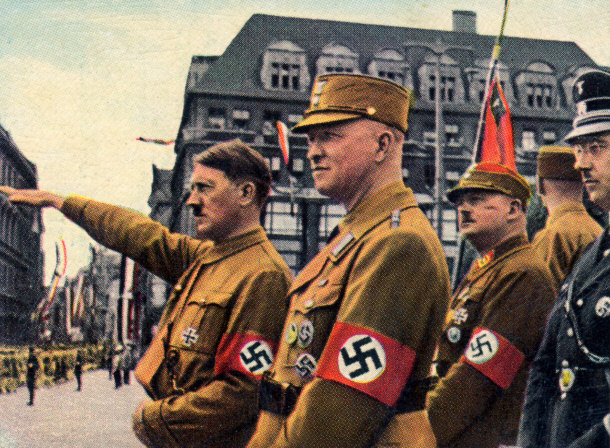
In 1924, Heinrich Himmler the man often regarded as the mastermind behind the
Holocaust, praised Ford as an important, valuable and witty public figures on a
global scale, fighting for the Nazi ideals. Furthermore, Ford was the only
American mentioned favorably in Adolf Hitler’s semi-autobiographical ‘Mein Kampf’,
in which Hitler also marveled at Ford’s success, in an industry that Hitler
regarded as being controlled by Jews. In 1931, Hitler publicly called Ford an
“inspiration”.
Fact 8) Henry
Ford Believed in Reincarnation
According to Ford’s pastor, Episcopal minister Samuel S. Marquis, Ford believed
or at least had at some point believed in the idea of reincarnation.
Fact 7) Henry
Ford Published a Book Against Cigarettes
Although Henry Ford wasn't exactly a teetotaler, he was health oriented in his
lifestyle. As a result, he once published a book
against cigarettes, documenting
the dangers of the habit, backed up by research of the time and opinions of
health experts called ‘The Case Against the Little White Slaver’ (1914).

This was way ahead of his time considering it was believed to be completely
acceptable behavior to smoke. Physicians at times would even recommend it to
their patients.
Fact 6) Henry
Ford had Environmentally Friendly Ambitions
Always eager to explore new ideas, Ford had a long-held interest in the
possibility of developing plastics from agricultural products, in particular
soybeans. As a result, a number of soybean-based plastics were utilized in Ford
vehicles during the 1930s for various features.

Furthermore, Ford’s ambition to develop an environmentally friendly car led
to the production of the concept car, the Soybean car, otherwise known as the
Hemp body car, in 1941. Although it had a number of positive elements – it
weighed 30% less than cars made of steel, had the ability to withstand impact
better than steel vehicles and ran on ethanol derived from hemp – the machine
never caught the public’s attention.
Fact 5) His
Significance in Technological Pioneering
Ford pioneered the use of engineered woods, as he felt that the best wood could
be made rather than grown. He also experimented with the use of corn as a fuel.

Ford also played a significant part in the development of charcoal briquettes,
which were originally marketed as “Kingsford”, when his brother in-law E.G
Kingsford, utilized wood scraps from Ford’s factory to produce the charcoal.
Fact 4) Henry
Ford Believed in Preserving Americana
Ford had a great appreciation for anything and everything “Americana”, so much
so that he attempted to produce an Americana-themed village, though he never
managed to realize the dream venture.

In 1929, Ford achieved somewhat achieved his ambition when he opened an
indoor and outdoor museum of American technology that displayed a variety of
famous pieces of machinery, homes and exhibits. It was originally known as the
Edison Institute then later changed its name to The Henry Ford, though it is
commonly known as the Henry Ford Museum or Greenfield Village.
Fact 3) Henry
Ford Never Officially had Executive Title
During his time with his company, Ford never actually had an official executive
title. For over 20 years, he served simply with de facto control of the business
and the company’s board simply never dared defy his wishes.
Fact 2) Henry
Ford's Last Years Were Abysmal
Despite Ford’s remarkable accomplishments in his early years, his last years
weren't so constructive. In fact, he almost ran the business into the ground. In
1943, Henry’s son, Edsel the then president of Ford Motor Company, died from
cancer. Henry assumed the presidency of the company. However, this was after
numerous health issues, including numerous strokes and a heart attack. As a
result, the long-time conspiracy theorist was now even more paranoid and made
highly questionable decisions.
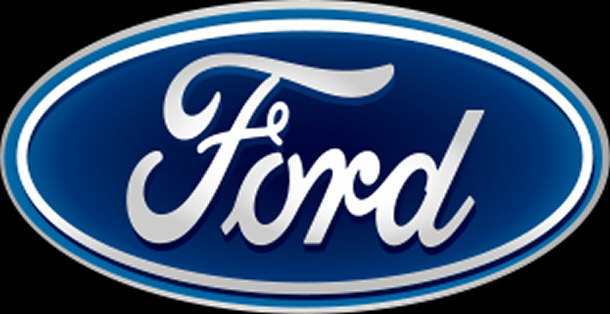
During the early to mid 1940s, the FMC lost over $10 million each month
(approximately $132,670,000 by today’s standards). The company was doing so
badly that the President at the time Franklin Roosevelt, considered having the
government take over the company, to ensure the production of weapons for World
War II.
Fact 1) Henry
Ford Hated Car Racing
Ford was involved in car racing between 1901 and 1913, as both a developer and
driver, before he opted to hire drivers. He was even an early supporter of the
Indianapolis 500. However, despite his involvement and significant history in
the industry, Ford actually hated car racing. For him, it was merely a necessity
as a way to promote his cars and his company, by showcasing what they could do.
Car Racing Celebrity Tommy Milton in 1921
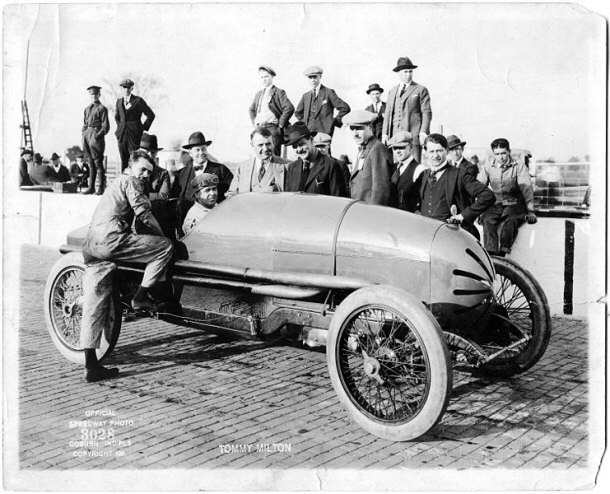
Overall, Ford felt that despite the popularity of car racing the activity was
inadequate for displaying a vehicle’s capabilities. Despite his fairly open
contempt for the very idea of car racing, in 1996 Ford was inducted into the
Motorsports Hall of Fame of America.
Conclusion
Henry Ford was a truly remarkable and innovative person. There is no doubt that
his genius has made such a significant impact and revolutionized the world. His
accomplishments will always remain one of history's biggest game changers in
production and innovations.
History
Top Lists:
15 Biggest Architectural Blunders
Top 15 Most Horrifying Terrorist Attacks
15 Fascinating Facts About the Vietnam War
Top 15 Amazing Ancient Egyptian Architecture
20 Little Known Facts About the Titanic
Top 10 Most Creepiest Abandoned Places in the World
26 Interesting Facts About Henry Ford
List of 15 Tough Ancient Warriors Through History
List of 15 Notorious Roman Emperors and Empresses
Top 15 Worst Pandemics in History
15 Things That Remained the Same in the Past 100 Years
Top 15 Things China Invented First
Top 15 Greatest Inventors in History
15 Interesting Facts About Abraham Lincoln
10 Inventors Who Stole Their Ideas
15 Stories of Hilarious Medieval Victories
15 Detectives Credited With Solving The Biggest Cases In History
15 Fascinating Facts About the Ancient Pyramids
15 Inventions That Were the Result of a Mistake
15 Famous Stories of Execution
16 Rare Facts About the U.S. Presidency
15 Astonishing Leadership Stories that Ended up Successfully
Informational:
Analysis of the Linear B tablets and Wall Paintings
Aristophanes and Classical Greek Comedy
The First War of Scottish Independence
|